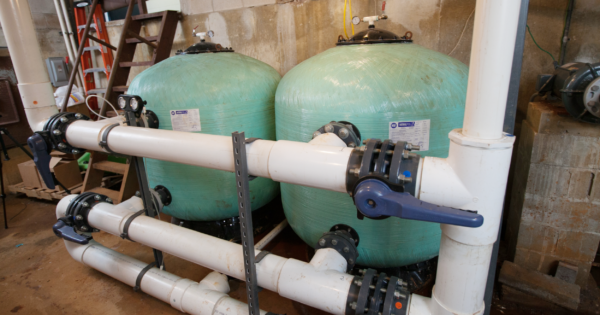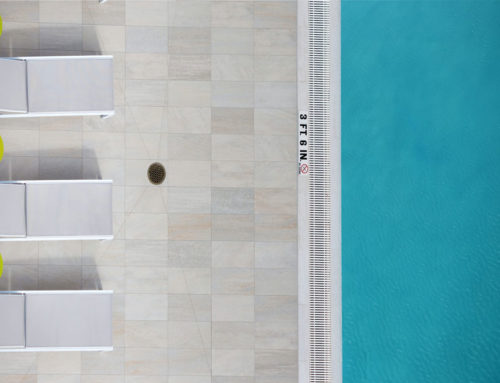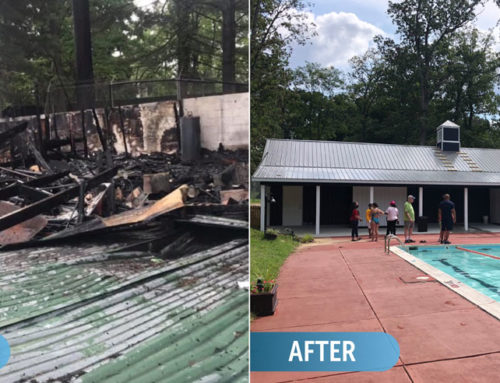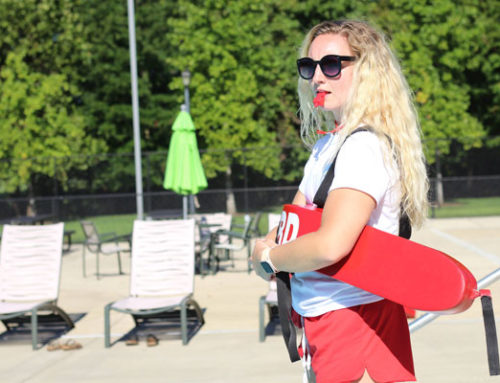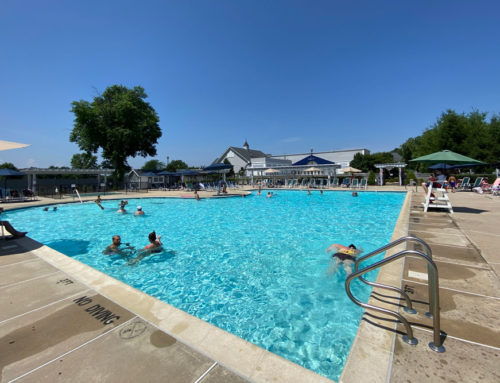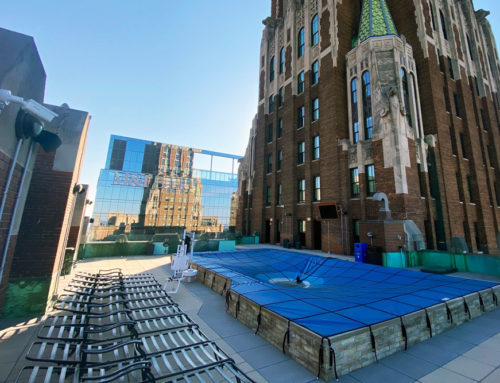Swimming pool equipment corrosion or rusting is inevitable, given the ongoing exposure to water and pool chemicals, but the process can be slowed. Rust is a form of corrosion affecting iron and iron alloys including steel. Corrosion can affect other metals but may not be referred to as rust. Rust and corrosion are destructive forces that cause heaters, pumps, motors, and valves to fail prematurely. There are steps to be taken to extend the lifespan of your pool equipment and slow the process. Proper care comes down to routine maintenance and balanced pool chemistry.
How Does Corrosion Happen?
Swimming Pool equipment is exposed to water in many ways as a part of its normal application. Internal components of heaters, pumps, filters, valves, and submerged pool fixtures are in constant contact with the pool water. Other metal components of the pool are exposed to water through condensation, water vapor, and leaks. When metals are exposed to water, oxygen, and corrosive environments, surface corrosion occurs and eventually weakens the pool components. Therefore, it’s important to have a planned approach to maintaining equipment throughout the pool season.
Combat Pool Equipment Rust and Corrosion
The approach to slowing or even eliminating corrosion is dependent on the source of the water that the equipment is being exposed to. So let’s break down the sources and solutions!
Constant Contact With Water
Steel pool surfaces, internal heaters, and pump components are immersed in pool water at all times. Maintaining a balanced water chemistry is essential for their preservation. When pool chemistry is unbalanced, the water becomes corrosive and will begin to eat away at the metal components. Heat exchangers and metal pump impellers are often affected quickly by corrosive pool water. A trained and certified pool professional will know how to maintain the sanitizer and pH levels, alkalinity, and calcium hardness so that your pool water doesn’t destroy your pool equipment from the inside out.
Water Leaks
Leaking pipes or equipment may result in the metal exteriors of equipment being exposed to water for extended periods of time. This exposure can lead to rusting or corrosion on the housings of pumps, filters, and heating units. Water dripping onto electrical equipment poses what could be a life-threatening hazard. Any leaks on the pool system should be identified during a regular inspection and tended to promptly by a qualified pool contractor. Maintaining a water resistant coating on pool pump and motor exteriors can also help reduce their corrosion even when exposed to water periodically.
Ground Water or Poor Drainage
Filter areas are often situated below grade and in basements of clubhouses. These areas are off-limits to the public and are sometimes ignored when it comes to building maintenance plans. Constant wetting from groundwater or from poor or clogged room drainage can result in conditions that invite corrosion of the pool equipment. The cost of addressing these conditions through sump and dehumidification systems may cost less than replacing pool equipment prematurely.
Leave Corrosion Combating to Us!
At American Pool, we have highly knowledgeable and skilled pool professionals that strive to keep your pool beautiful and clean. Our pool experts know how to prevent and address equipment corrosion! We are more than happy to plan and execute the best pool maintenance schedule for your facility. With a pool maintenance schedule put together by our team, your pool will remain balanced, clean, and safe.
Equipment corrosion is expected in the swimming pool environment, but your facility can take the necessary steps to keep it at a minimum. Taking measures to prevent corrosion will extend the lifespan of your facility’s pool equipment. If you’re looking for knowledgeable pool professionals to help combat corrosion or any other pool challenge, contact us today to set up a consultation.

